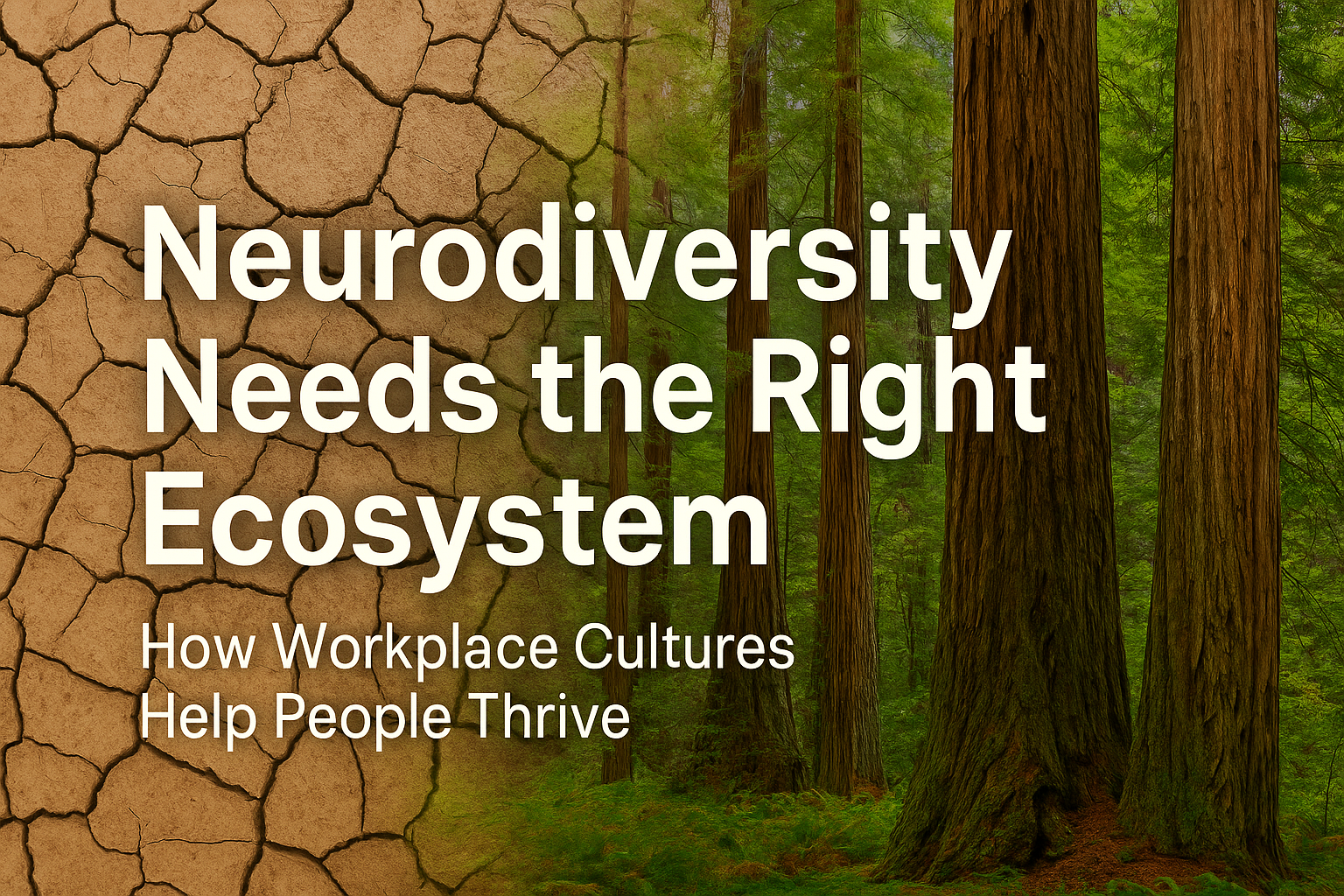Neurodiversity Needs the Right Ecosystem (How Healthy Cultures Help People Thrive)
You can hire the most brilliant minds. You can offer competitive pay, benefits, and even talk about inclusion in your branding. You can form neurodiversity committees, invite guest speakers, and post about collaboration and inclusion on your company's LinkedIn page.
But if the daily experience inside your organization is rigid, performative, or overly controlled, your neurodivergent employees won’t thrive.
They’ll mask. They’ll disengage. Eventually, they’ll leave. ✌️
The Redwood Metaphor
In nature, redwoods grow tall not because they’re genetically superior—but because of the environment they grow in. They thrive in moist, rich soil, surrounded by other trees, drawing strength from shared root systems.
Redwoods are biologically shallow-rooted—but structurally interconnected. Alone, they’d fall.
So will your people—especially the ones who think, learn, and relate differently—if they’re isolated in a dry, distrustful work culture.
What “Dry Culture” Looks Like
For neurodivergent professionals, it often looks like:
Weekly whiplash from shifting priorities or gaslighting
Micromanagement dressed up as “visibility”
Constant unspoken pressure to “act neurotypical”
Feedback loops that feel more like correction than conversation
Surface-level inclusion with no systems of support
Being told they’re “not a team player” when they speak up or opt out of social norms
Using performance reviews as a battering ram
These aren’t just annoyances—they are exhausting. And for many, they’re dealbreakers.
The emotional toll of masking, second-guessing tone, managing sensory fatigue, and navigating gaslighting from well-meaning managers creates detachment, not growth.
Neurodivergence Isn’t the Issue—Your Soil Might Be
This isn’t a talent problem. It’s an ecosystem problem.
Neurodivergent employees bring immense value: creativity, systems thinking, integrity, innovation, attention to detail, resilience. But when the culture is brittle and top-down, that value stays buried.
Without psychological safety, flexibility, and meaningful autonomy, redwoods—no matter how strong—begin to wither.
What Grows a Forest
If you want your team to rise like redwoods, start by tending the soil.
Ditch micromanagement. Offer structure, then trust.
Embrace difference. Let people problem-solve in their own ways.
Build actual support systems. From onboarding to mentorship, don’t leave neurodivergent employees to figure it out alone.
Listen and follow through. Feedback loops without change signal disinterest, not inclusion.
Create space for authenticity. Not everyone is meant to fit the mold—and that’s where your next innovation may come from.
Leaders who want sustainable, inclusive, high-performing teams need more than awareness. They need cultural integrity—a lived environment that nourishes people to thrive.
My Final Thought
You may have redwoods on your team already. But if the climate is dry—if the soil is shallow—don’t be surprised when growth stops... or seeks to uproot itself for a better climate.
Neurodiverse talent isn’t fragile. But it is responsive to its environment.
So the question isn’t whether your team is “diverse enough.” It’s whether your culture is fertile enough for it to take root.

